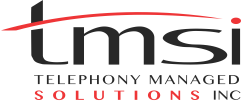1. Being loyal doesn’t pay: Generally speaking, businesses that have remained with any of the Cartel’s services for any length of time NEVER get a reduction in service costs the way new clients do. New client acquisitions STILL REMAIN the Telco’s primary growth goals. There is absolutely no point in pouring expensive resources into customer retention UNTIL the customers threaten to leave. This makes loyal clients subject to paying THE HIGHEST rates for services. Robin Hood Telecom will make loyalty pay.
2. Getting lower prices isn’t that easy: So shouldn’t all businesses just call up and get lower rates from Telus and other Telcos in the Cartel? Sure they should. Most don’t. Most businesses chase higher revenues and not lower expenses. (Gee sounds like the Telcos…) Assigning resources to lower operating costs is only done when a company faces a crisis in cash or it’s economic status. Then its all about cutting costs. This usually is done by cutting staff. And try calling Telus to get your rates reduced. Telus has anticipated this and makes getting to the right people in the right department a challenge. There is no phone number to call. It’s THE PHONE COMPANY. How hard can it be to get a dedicated phone number to call for loyal customers? Then you have to know what to ask, what to say and how to say it. Then you must be patient and initiate several calls. Then you cannot get a new quote in writing with the lower rates easily – if at all. You get our 30 years working in the Telecom business doing all this for you for a price you won’t believe. Robin Hood Telecom.
3. You do not see Business Telecom line rates advertised by the Cartel. Why? You see Mobile Phone prices advertised ALL the time on TV, radio and print advertising. That’s because it is VERY competitive and a growth business. That’s because it’s not competitive. No competition, no need to earn your business. You and Robin Hood Telecom services rock!
4. You do not get notified when prices go down. Imagine paying the same price for a computer that you did 10 years ago. And the supplier doesn’t tell you that prices have dropped. The rules and rates are changing but you are never notified if its to YOUR ADVANTAGE. You can get lower prices through Robin Hood Telecom this time.
5. Did YOUR Business make $300 Million in NET Profits last quarter? If you are paying Telus for your services, you helped Telus make about $300 MILLION in the LAST 3 months. In profit! Check out this 2012 Quarterly Report from Telus: http://bit.ly/17CaE6S No seriously! Click on it and prepare to be amazed. Robin Hood Telecom will get some of that $300 million back into YOUR Bank account with minimal time investment on your behalf.
We would like to proceed and save you money immediately. This process costs you nothing, we simply share a portion of the savings retrieved.
